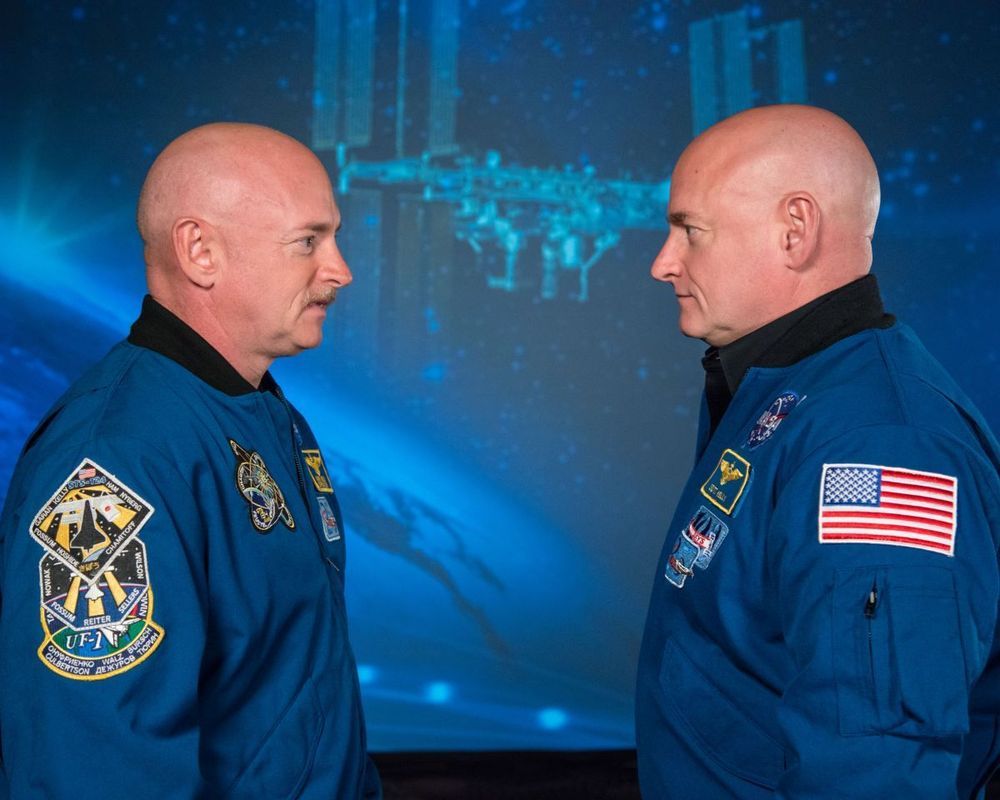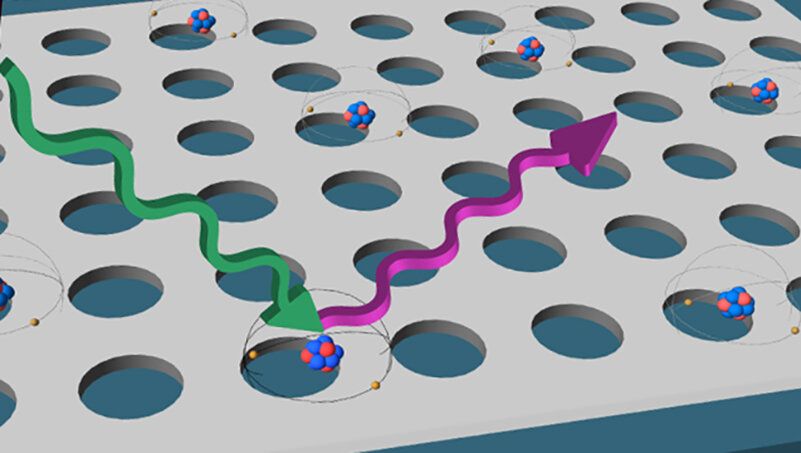End analysis: No long term or irreversible damage due to long term space exposure.
Here’s what happens on long-duration space missions.


A new study from the Army Research Lab may help AI-infused weapons and tools better understand their human operators.
In World War II, the Allies had a big problem. Germany’s new bombers moved too quickly for the anti-aircraft methods of the previous war, in which soldiers used range tables and hand calculations to line up their guns. Mathematician Norbert Wiener had a theory: the only way to defeat the German aircraft was to merge the gun and its human operators — not physically but perceptually, through instruments. As Weiner explained in the video below, that meant “either a human interpretation of the machine, or a machine interpretation of the operator, or both.” This was the only way to get the gun to fire a round on target — not where the plane was but where it was going to be. This theoretical merger of human and machine gave rise to the field of cybernetics, derived from the Greek term cyber, to steer, and the English term net, for network.

Ultra-secure online communications, completely indecipherable if intercepted, is one step closer with the help of a recently published discovery by University of Oregon physicist Ben Alemán.
Alemán, a member of the UO’s Center for Optical, Molecular, and Quantum Science, has made artificial atoms that work in ambient conditions. The research, published in the journal Nano Letters, could be a big step in efforts to develop secure quantum communication networks and all-optical quantum computing.
“The big breakthrough is that we’ve discovered a simple, scalable way to nanofabricate artificial atoms onto a microchip, and that the artificial atoms work in air and at room temperature,” said Alemán, also a member of the UO’s Materials Science Institute.

In quantum mechanics, the Heisenberg uncertainty principle prevents an external observer from measuring both the position and speed (referred to as momentum) of a particle at the same time. They can only know with a high degree of certainty either one or the other—unlike what happens at large scales where both are known. To identify a given particle’s characteristics, physicists introduced the notion of quasi-distribution of position and momentum. This approach was an attempt to reconcile quantum-scale interpretation of what is happening in particles with the standard approach used to understand motion at normal scale, a field dubbed classical mechanics.
In a new study published in EPJ ST, Dr. J.S. Ben-Benjamin and colleagues from Texas A&M University, USA, reverse this approach; starting with quantum mechanical rules, they explore how to derive an infinite number of quasi-distributions, to emulate the classical mechanics approach. This approach is also applicable to a number of other variables found in quantum-scale particles, including particle spin.
For example, such quasi-distributions of position and momentum can be used to calculate the quantum version of the characteristics of a gas, referred to as the second virial coefficient, and extend it to derive an infinite number of these quasi-distributions, so as to check whether it matches the traditional expression of this physical entity as a joint distribution of position and momentum in classical mechanics.


As a genetic material, DNA is responsible for all known life. But DNA is also a polymer. Tapping into the unique nature of the molecule, Cornell engineers have created simple machines constructed of biomaterials with properties of living things.
Using what they call DASH (DNA-based Assembly and Synthesis of Hierarchical) materials, Cornell engineers constructed a DNA material with capabilities of metabolism, in addition to self-assembly and organization – three key traits of life.
“We are introducing a brand-new, lifelike material concept powered by its very own artificial metabolism. We are not making something that’s alive, but we are creating materials that are much more lifelike than have ever been seen before,” said Dan Luo, professor of biological and environmental engineering in the College of Agriculture and Life Sciences.

If you happen to be thirsty in the woods, there are a lot of things you can stick in your canteen to help clean up your drinking water. There are chlorine pills and filters (not crystals — never crystals). And now scientists have identified a certain kind of moss that could do it, too.
The moss is called Warnstorfia fluitans. It grows in Swedish wetlands contaminated with the toxic arsenic from nearby mining operations. Researchers found that the moss brought the arsenic levels of water down to drinkable levels surprisingly quickly, according to research published in the journal Environmental Pollution.
In northern Sweden, iron mines have contaminated much of the water with arsenic, a metal that is also toxic to humans. That harmful combination works its way into agricultural products like rice, traveling throughout the food web.

From smog-sucking bikes to electric taxis and paint made of car exhaust, designers and architects are stepping up to address air pollution—the world’s single largest health risk. But a new air filter making the rounds in Oslo, Paris, Brussels, and Hong Kong shows that nature may be our best ally in this battle.
Essentially a moss-covered wall, each CityTree removes CO2, nitrogen oxides, and particulate matter from the air while also producing oxygen. A single tree is able to absorb 250 grams of particulate matter a day and remove 240 metric tons of CO2 each year—a level roughly on par with the air purification impact of 275 urban trees. Thirteen feet tall, with a metal frame, the CityTrees are easily installed in a public space, and they even have built-in seating at their base.